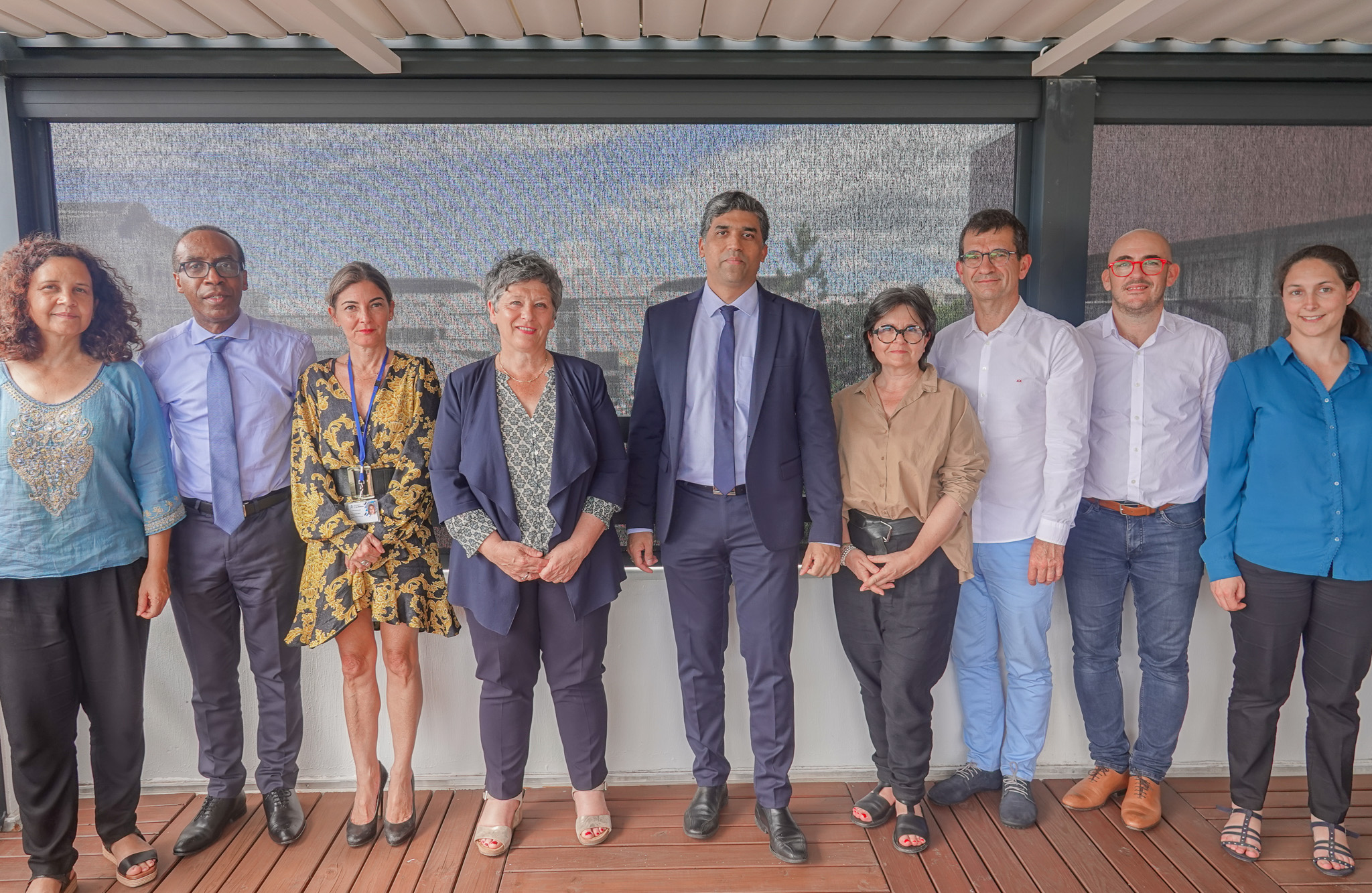The CEO of the IRD received at the University of La Réunion
This Tuesday, May 2, the University of Reunion represented by its President, Mr. Frédéric MIRANVILLE, its President of the Academic Council, Mr. Gilles LAJOIE, its Vice-President of the Board of Directors in charge of research and valorization, Mr. Patrick MAVINGUI and its Deputy Vice-President of Europe, International and regional cooperation, Mrs. Anne-Françoise ZATTARA, had the pleasure of receiving on the Moufia campus the delegation from the Institute of Research for Development (IRD), led by Mrs. Laurence TIBÈRE, Director researcher and representative of the IRD in Reunion, Mayotte and the Scattered Islands who accompanied the President and CEO of the IRD, Mrs. Valérie Verdier.
This meeting was an opportunity for a time of constructive discussion with regard to the numerous existing partnerships and the structuring of future partnerships. Among the large-scale projects, a priority research program and equipment (PEPR) called “BRIDGES”, supported by the IRD and of which the University of Reunion is a privileged partner. Within the “directed” component of France 2030, an action is dedicated to financing the most fundamental research: the PEPR. They aim to build or consolidate French leadership in scientific fields linked or likely to be linked to technological, economic, societal, health or environmental transformation and which are considered priorities at national or European level.
The PEPR BRIDGES aims connect conservation, development and cooperation objectives to increase resilience to climate change, food insecurity and emerging conflicts. It is part of a scientific diplomacy approach aiming, with its systemic and innovative vision, to change the paradigm for the governance of the commons in order to reduce environmental vulnerability and the risk of conflict in coastal areas. BRIDGES is based on an innovative approach based on the networking of socio-ecological systems and on interdisciplinary, multi-sectoral and equitable regional collaborations making it possible to increase knowledge, anticipation, common management, preservation and, in fact, , the resilience of the French and coastal territories of the southwest of the Indian Ocean to future environmental and socio-economic changes. By choosing this deployment area, this program also aims to support France's position in the region by showing its capacity to strengthen regional multilateral dialogue for a shared healthy ocean.
By relying on the deployment of sustainable integrated climate-ocean-resources-user observatories based on open science and aiming for carbon neutrality, and on robust prediction tools with a socio-ecological avatar, BRIDGES will promote the implementation place of decision support structures for a profound transformation of societies.
Top of page

